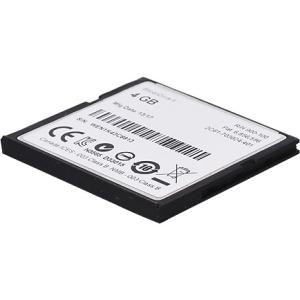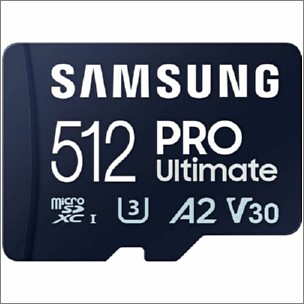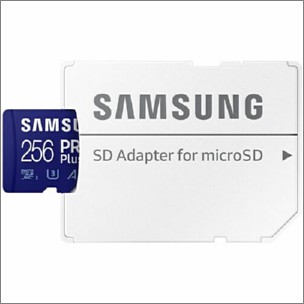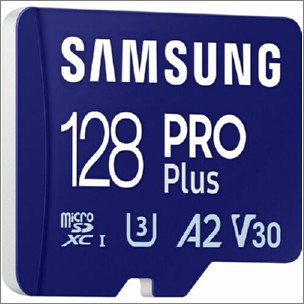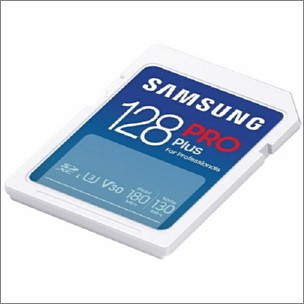X600 1gb Compact Flash Card Wireless - Pl=34 JC684A
JC684A | Aruba Networks®
New Listing!
Part Number: JC684A
Condition: New
In Stock:
Out of stock
Real time availability 
Notify Me
Product Specifications
X600 1gb Compact Flash Card Wireless - Pl=34 JC684A
X600 1GB COMPACT FLASH CARD Wireless - PL=34
Manufacturer Part Number: JC684A
MANUFACTURER NAME: Aruba Networks
MANUFACTURER PART NUMBER: JC684A
UPC EAN CODE: 886111527151
LANGUAGE: EN
MARKET:US
| General Information: | |
| Manufacturer | Hewlett Packard Enterprise |
| Manufacturer Part Number | JC684A |
| Manufacturer Website Address | http://www.hpe.com |
| Brand Name | HPE |
| Product Name | 1GB CompactFlash (CF) Card |
| Product Type | CompactFlash |
| Product UPC | 886111527151 |
| Technical Information: | |
| Storage Capacity | 1 GB |
| Miscellaneous: | |
| Country of Origin | Malaysia |
Questions and Answers
Questions and Answers | Ask CompSource |
Shipping / Returns
Shipping
Ground =
FREE
(Delivery within 2-7 business days)
Two Day Air = $25.00
(Delivery within 2 business days)
Standard One Day = $35.00
(Delivery within next business day)
Priority = $45.00
(Delivery within next business morning)
U.S Mail Priority (AA,AE,AP only) = $30.00
FedEx International Economy (Canada only) = $85.00
Typically out of stock items are filled within 1 to 14 business days but can and may take longer.
Shipping dates are best estimates based on product location and may vary with holidays.
If product requires trucking, additional fees may apply.
* Some destinations are subject to Applicable State/Duty Taxes
Returns
CompSource realizes that every product may have different return guidelines. Please see the policy below regarding this item.
This Product Has Limited Exchange Privileges.
Please call for return guidelines.
For support on this product, please contact Aruba Networks.
Aruba Networks Company's Information
Product Reviews
Overall Rating | Write a Review
|
|
Best Sellers
More Best Sellers
Learn more about Memory Cards
Title: Computer Memory/RAM: An Essential Guide
Introduction:
Computer memory, also known as RAM (Random Access Memory), is a crucial component in any computer system. With technological advancements and new software requiring more memory than ever before, having enough RAM is essential for your computer to operate smoothly and efficiently.
In this guide, we'll cover everything you need to know about computer memory, including the different types of RAM, how it works, how much you need, and what to look for when purchasing memory modules to upgrade your desktop or laptop.
Types of RAM:
There are two main types of RAM in use today - DDR3 and DDR4. DDR3 has been the standard for many years but is being steadily phased out in favor of the newer DDR4 memory. Key differences include:
- DDR4 has higher bandwidth, meaning it can transfer more data within a given time period.
- DDR4 uses less power and generates less heat.
- DDR4 modules have higher density - you can fit more memory capacity onto a single module.
For most people looking to upgrade a computer in 2023, DDR4 is the best choice.
How Does RAM Work?
RAM stores data that the computer's processor needs to access quickly to function smoothly. Unlike storage drives, the data in RAM is temporary rather than permanent. The more RAM your system has, the more data can be loaded from storage into memory so the processor can work on it faster.
Having insufficient RAM means the computer has to constantly swap data back and forth from the storage drive which significantly slows down performance. Upgrading your RAM allows more applications and background processes to stay running in memory at once.
How Much RAM Do You Need?
How much RAM you need depends on what you use your computer for. Basic web browsing and office work can get by on 4GB, but optimal performance for gaming or creative work like photo/video editing generally requires at least 8-16GB.
For professional media creation or running multiple intensive applications at once, 32GB or more may be necessary. Check your existing RAM usage to determine if an upgrade is needed.
What to Look for When Buying RAM:
When purchasing RAM to upgrade your computer, there are a few key specifications to keep in mind:
- Type - Make sure to get DDR4 SoDIMM RAM for laptops or DDR4 DIMM for desktops.
- Speed - Faster RAM (measured in MHz) provides better performance, but make sure it is compatible with your system. For Intel processors, look for DDR4-2666 or higher.
- Capacity - Determine how much RAM you need based on your usage and budget. 8GB or 16GB modules are common choices for most users.
- Brand - Stick with major reputable brands like Corsair, Kingston, Crucial for reliability.
Following these guidelines will ensure you get the right type of high-quality RAM to maximize your computer's performance. Investing in enough memory goes a long way!
Upgrading your computer's RAM is one of the easiest and most cost-effective ways to significantly improve performance. Understanding the differences between DDR3 and DDR4 or DDR5 memory, checking your current usage, and purchasing a reputable high-speed module with sufficient capacity will allow you to multitask efficiently and get the most out of your system. Be sure to add enough RAM to meet your needs today and into the future.
Random Access Memory, or RAM is the physical hardware inside a computer that temporarily stores data, serving as the computers working memory.
Additional Memory / RAM allows a computer to work with more information at the same time, which will increase the performance of the entire system.
Points to help make memory more understandable;
What type of memory form factor are most common?
Speed and generation of memory.
- Remember your motherboard is only compatible with specific types, speeds and generations of memory.
an example: DDR5 4800 MHz
- With today's programs, games and web browsing, the more memory you have the better. In today's environment, the standard is around 8Â GB, but more is always better!
Please check your motherboard manual to confirm how much memory your board will handle.
- There is a new type of storage called Solid State Drives or SSD's which is incredibly fast and reliable as there are no moving parts. SD Cards (SD/Flash) are memory based storage typically used for camera's, cell phones, and camcorders.
They take a customer comes firstapproach and it shows. bill????More Reviews



